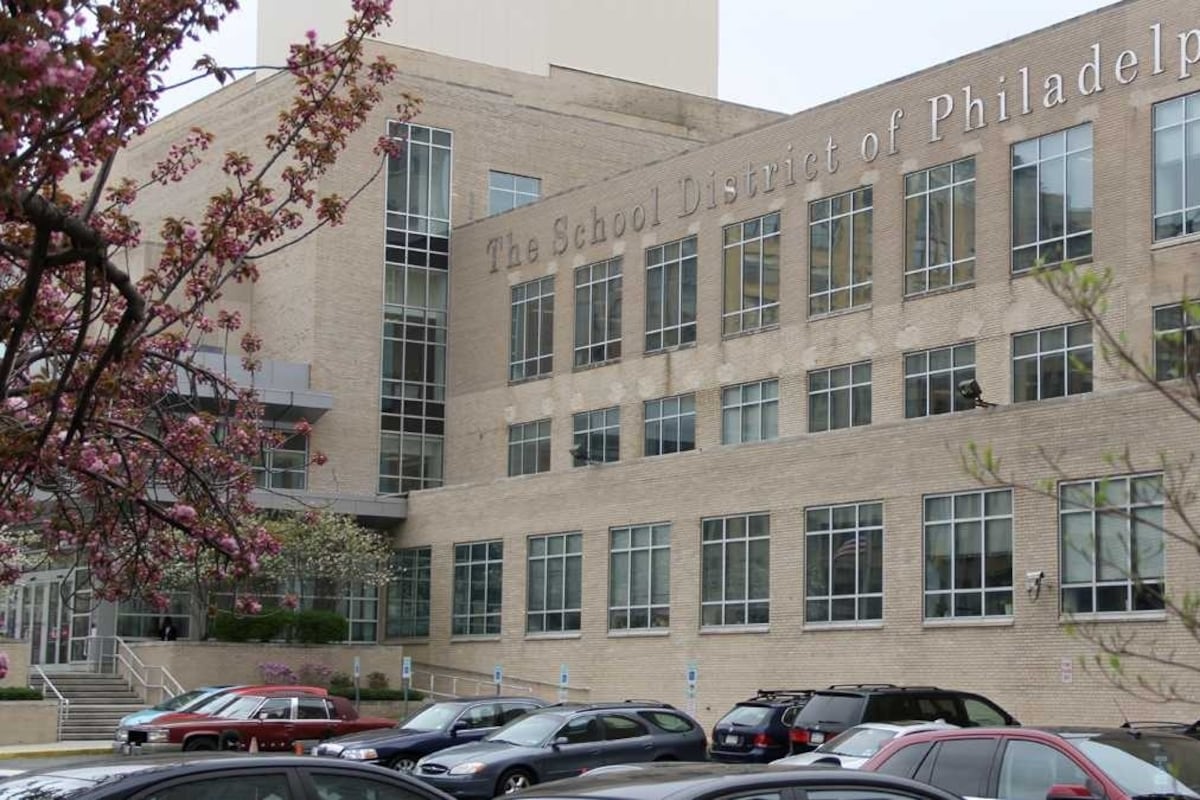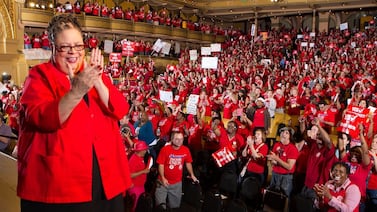At his first Board of Education meeting Thursday, new Superintendent Tony Watlington Sr. reiterated his goal to make Philadelphia one of the fastest improving urban districts in the nation. But to achieve that goal, he and district officials will have to make do without tens of millions of dollars they might have been counting on, due to recent decisions by city leaders and the courts.
The same day as Watlington’s first board meeting, the City Council passed a fiscal 2023 budget that gives the school district $25 million less in property tax revenue than the district planned for, based on Mayor Jim Kenney’s original proposal. And a state Supreme Court ruling earlier this month about commercial properties means the district will have to repay $35 million to taxpayers, all of it coming out of the 2023 budget.
The combined $60 million hit to anticipated district revenue will impact some budget projections for both fiscal 2023 and the district’s five-year plan, district finance director Uri Monson told the board.
The Board of Education cannot raise tax revenue on its own. It is entirely dependent on the city and state for the funds it needs to operate. The $60 million represents roughly 1.5 percent of the district’s proposed fiscal 2023 budget of $3.9 billion. The school district gets 55% of the city’s property taxes, which account for just over $1 billion of the district’s budget.
Board member Mallory Fix-Lopez said that the city’s decision “will absolutely lead to cuts of staffing” at some point. Monson said in an interview that layoffs are not imminent, but said the decision will make it “challenging if not impossible to maintain an array of investments” made with federal COVID relief funds, and that the cut’s impact would grow over time..
The $25 million gap between the district’s revenue assumption and what Philadelphia is providing stems from the City Council’s decision to increase the property tax homestead exemption from $45,000 to $80,000, and to make adjustments to a program capping taxes for longtime homeowners in gentrifying neighborhoods, all to ease the impact of the city’s first property tax reassessment in three years. That reassessment led to property values rising by an average of 31%.
Joe Grace, a spokesman for City Council President Darrell C. Clarke, said in a statement that the council “heard from homeowners loudly and clearly” regarding the impact of the reassessment on them. “This decision wasn’t made lightly, and Council understands the importance of property taxes in funding our schools,” Grace said.
Donna Cooper, executive director of the state education advocacy group Children First, expressed disappointment that the council made tax changes in a way that puts the brunt of the consequences to the school district.
Kenney and the council could have softened the effect on the district by allocating more money for schools out of the city’s general fund, but didn’t, she said.
Some of the investments made with federal COVID aid that may not be sustainable in the long term include additional counselors, accelerated building repair, more discretionary positions for schools, and enhanced before- and after-school programming,
Separately, the district must repay $35 million to taxpayers due to an adverse court ruling on June 8. In that case, the Pennsylvania Supreme Court denied the city’s right to appeal a 2019 lower court decision that the city violated the state constitution’s “uniformity clause” by reassessing only commercial properties in 2018, not residential properties.
A state funding picture in flux
Grace said that it was time for the state “to more equitably and fairly fund public education.” But such a change, coming from the state legislature or the courts, is far from certain.
Gov. Tom Wolf, who’s in his final year in office, has proposed a $1.7 billion increase in K-12 education spending for fiscal 2023 to more than $15 billion overall. Most of that would come through a hike in basic education aid to school districts from $7 billion to $8.6 billion. He also wants a new funding formula that would redistribute revenue in a way that would likely benefit Philadelphia public schools.
But statehouse Republicans — who support more charter schools in struggling districts like Philadelphia — are proposing a smaller increase, less than half what Wolf wants and more in line with past increases, according to Cooper and other advocates who are monitoring the negotiations, despite a state budget surplus close to $14 billion.
Wolf has also proposed changes to the charter school reimbursement formula that would save the Philadelphia district $145 million by, among other things, tying payments for special education students more closely to their actual needs. Under the current formula, the district must pay charters about three times per student for special education students than for regular education students, regardless of the severity of the child’s disability.
Philadelphia has half the charter schools in the state, and its charters educate close to 80,000 city students.
But Republican lawmakers, who control the legislature, are likely to reject such changes to the formula. And they are also proposing a big increase in the state program that provides tax breaks to corporations that subsidize scholarships for students who attend private and parochial schools.
The deadline for a final state budget is the end of June.
Meanwhile, an ongoing lawsuit (which Grace highlighted) seeks to overhaul Pennsylvania’s funding system so that low-wealth, high-needs districts including Philadelphia would get more aid.
Commonwealth Court Judge Renée Jubelirer is expected to rule in that case in the fall. But the ultimate resolution, after likely appeals, isn’t expected for well beyond that.
Dale Mezzacappa is a senior writer for Chalkbeat Philadelphia, where she covers K-12 schools and early childhood education in the city. She is a former president of the Education Writers Association. Contact Dale at dmezzacappa@chalkbeat.org.







